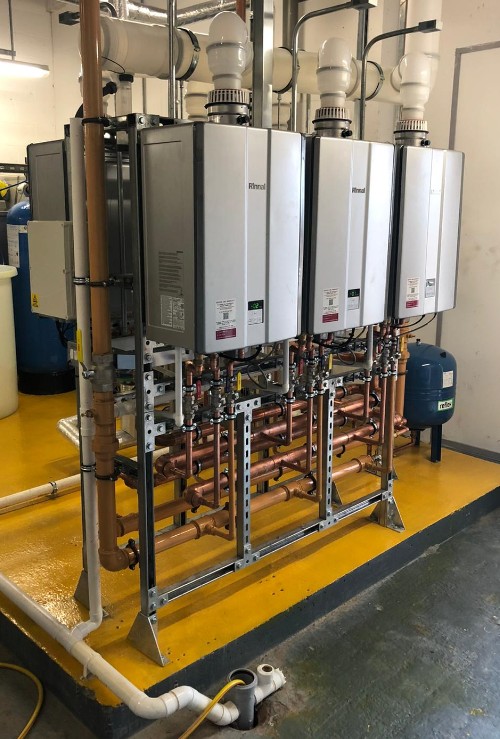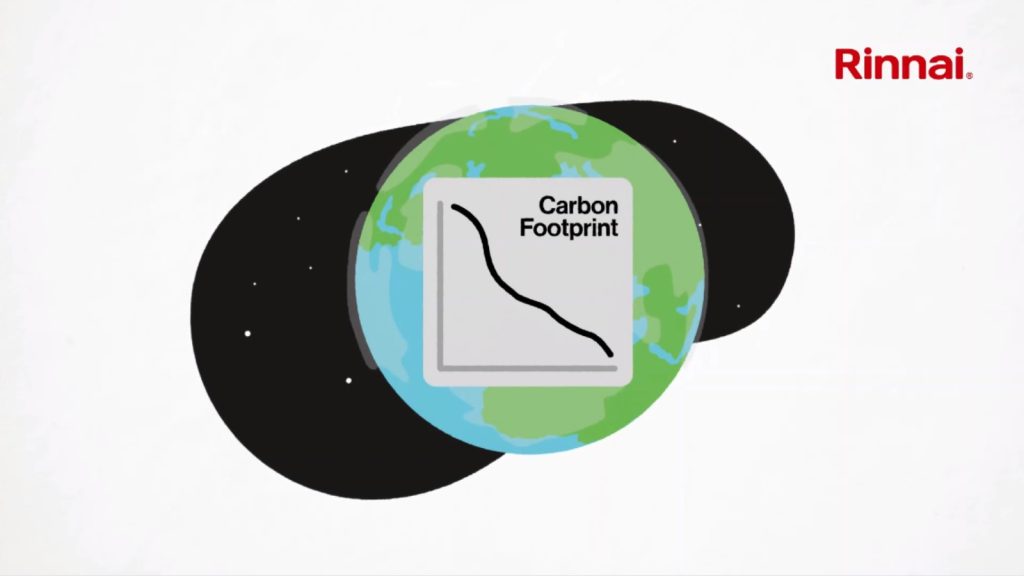
Rinnai heating and hot water units supplying limitless hot water on demand to all off-grid sites
Chris Goggin reviews the operational and ecological benefits of using BioLPG and DME as an alternative fuel source for off-grid rural domiciles and businesses.
Rinnai hot water heating units and systems which are off-grid can be powered by LPG and BioLPG – a lower carbon intensive alternative source of fuel. Alternative energy is currently in demand due to recent developments in Ukraine that have radically altered the global energy landscape.
Current energy market conditions could potentially introduce further alternative fuel sources such as renewable biofuel Dimethyl ether (DME). Renewable DME is similar to LPG. R DME is a molecule-based fuel that can be produced through a wide range of renewable feedstocks which allows for quick and
long-term sustainable production.
R DME combusts cleanly and releases no “soot” emissions. Dimethyl ether has many fuel properties that make it easily used in sites and appliances using heating oil. It has a very high cetane number, which is a measure of the fuel’s ignitibility in compression ignition engines. The energy efficiency and power ratings of DME and heating oil engines are virtually the same. R DME is safe and reduces greenhouse gas emissions by up to 85% better improving local air quality.

Prior to this development LPG was the lowest carbon emitting source of fuel for the 15% of UK businesses and domiciles that function off-grid. BioLPG contains an almost identical chemical structure to LPG, meaning that a current Rinnai system is futureproofed and can accept either BioLPG or LPG.
